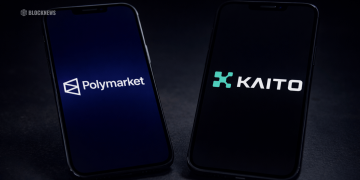- Morgan Stanley will launch crypto trading via E-Trade in early 2026, starting with BTC, ETH, and SOL.
- The bank is working with Zerohash for custody and liquidity, while developing its own digital wallet for clients.
- Long-term plans include tokenized assets, which Morgan Stanley says will disrupt the entire wealth management industry.
Morgan Stanley is moving closer to rolling out crypto trading for retail investors through its E-Trade platform. According to an internal memo obtained by CNBC, the bank plans to launch the service in the first half of 2026. The move represents a significant step forward for the wealth management division, which already accounts for nearly half of Morgan Stanley’s revenue.
The initiative is being developed in partnership with Zerohash, a startup providing liquidity, custody, and settlement solutions. Morgan Stanley has also taken an equity stake in the firm, signaling its deeper commitment to digital asset infrastructure.
From Bitcoin Funds to Direct Ownership
While Morgan Stanley and other big banks like Goldman Sachs previously dabbled in offering Bitcoin funds to wealthy clients, this new rollout marks a shift toward direct ownership of crypto. Clients will soon be able to buy and hold Bitcoin (BTC), Ethereum (ETH), and Solana (SOL) through E-Trade, cutting out third-party management fees.
This pivot reflects a broader trend on Wall Street: wealthy clients increasingly expect traditional and digital assets to be managed side by side. Jed Finn, Morgan Stanley’s head of wealth management, described the development as a “transformative moment” for the industry.
Beyond Crypto: The Tokenization Wave
Perhaps most notable, the bank isn’t stopping at crypto trading. Morgan Stanley is building a digital wallet that will eventually custody not only cryptocurrencies but tokenized versions of traditional financial assets like cash, bonds, stocks, and even real estate. Finn said tokenization will “significantly disrupt” wealth management by making assets instantly yield-bearing and more efficient to move.
Calling crypto trading the “tip of the iceberg,” Finn emphasized that the long-term strategy is to merge digital assets with existing wealth products. By embracing distributed ledger technology (DLT), Morgan Stanley aims to stay ahead of a market that is rapidly shifting toward tokenization.














